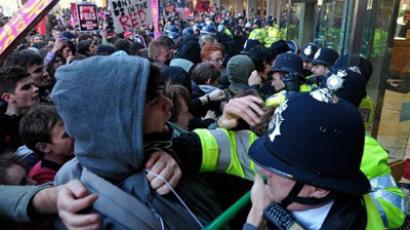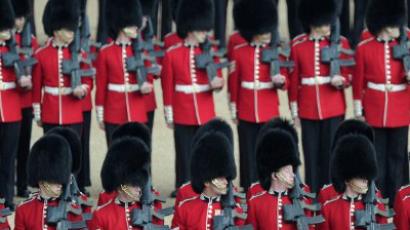Poor UK families feel the heat…not!
Thousands of British families are feeling the chill, stuck below the poverty line and unable to meet soaring energy bills. And it is having an impact on the next generation, which has slipped through the government net for heating handouts.
Boiling the kettle for tea – this is something that single mother of four Julie Henry cannot afford to do very often. Hers is one of 800,000 families in the UK living in “fuel poverty” – struggling to pay for heating and electricity. In the last three years, she says her bill has doubled, and it is a constant juggling act.“The more goes to the bill, and for food and school uniforms, then you have nothing to save, so that’s the difficult bit of it. The children have to eat, four of them have to eat, and their school uniform I have to buy, and on top of that cut down on the electricity use and the light bill. I try to cut down so many things, but it’s not working,” says Henry.The Warm Home Discount is a government scheme aimed at helping low-income families heat their houses adequately in the winter. But charity Save the Children says energy companies are not contributing enough to the fund, meaning only 3 per cent of families are getting the help they need – with disastrous social consequences.“We know that growing up in a cold and damp home has a really profound impact on children in terms of their physical health, in terms of their mental health, in terms of their general well-being. Indirect effects in terms of their educational attainment and their chances in life,” says Chris Wellings, head of policy at the Save the Children, an internationally active non-governmental organization that promotes children's rights. Energy UK, which represents gas and electricity companies in the media, refused to give an interview. But they did issue the following statement: “Following consultation, the Government decided who will benefit from core funding under the new Warm Home Discount scheme, and those customers will get an automatic discount off their electricity bill without needing to apply for it,” said Christine McGourty, director of Energy UK. Save the Children says that is not good enough. Currently, only pensioners automatically benefit from the Warm Home Discount scheme, and others must apply, which charities say is very complicated. The scheme is under-funded, and every year energy bills are ticking up and up. Additionally and crucially, poor families often use a pay-as-you-go system for their electricity and gas, which works out more expensive than paying monthly. A poverty premium in action.Meanwhile, Julie sees first-hand the other price of being poor. If she can only afford to heat her house for two hours a day, her children suffer at school.“Even though they have got jumpers to put on and socks on, they still can’t sleep because the place is too cold. They go to bed late, and wake up late, and they don’t concentrate. My two sons were in big trouble all the time, too many detentions, tired, sneezing all over the place. Matthew got asthma,” Julie says. Save the Children says it will carry on lobbying the government for the help poor families need. And Julie Henry and her children will go on fearing that the next energy bill they receive will be the one that drives them into debt.














